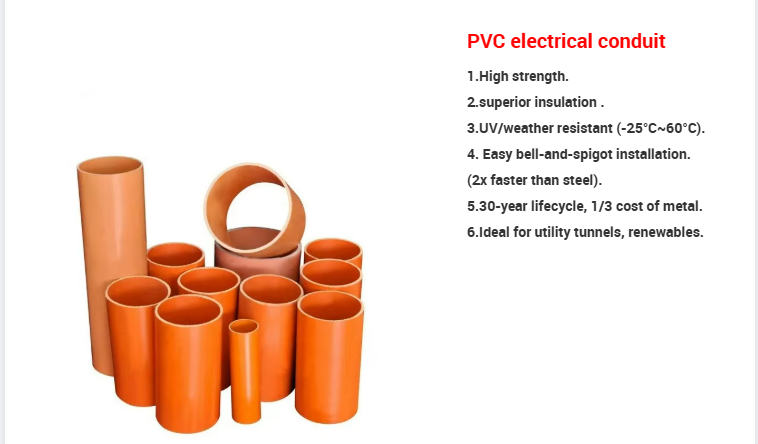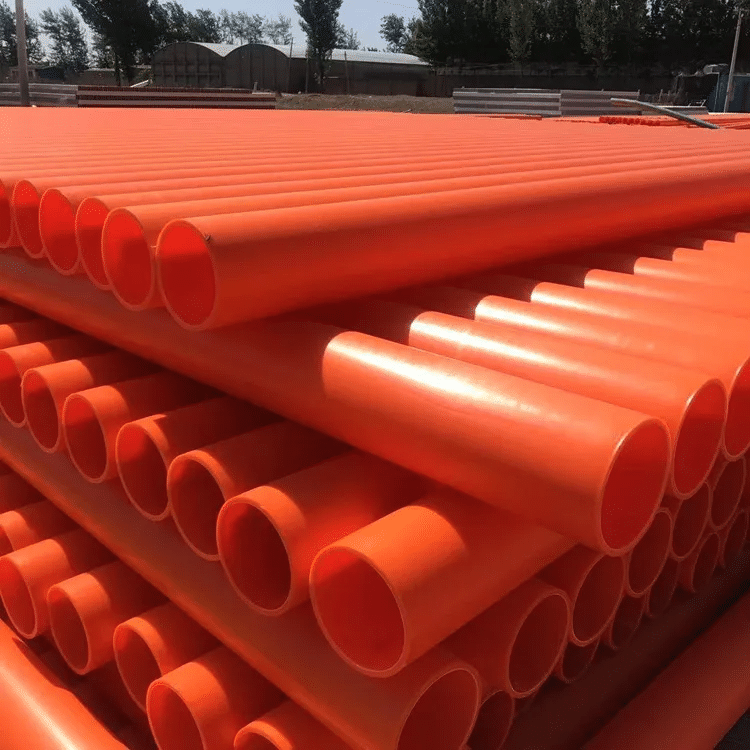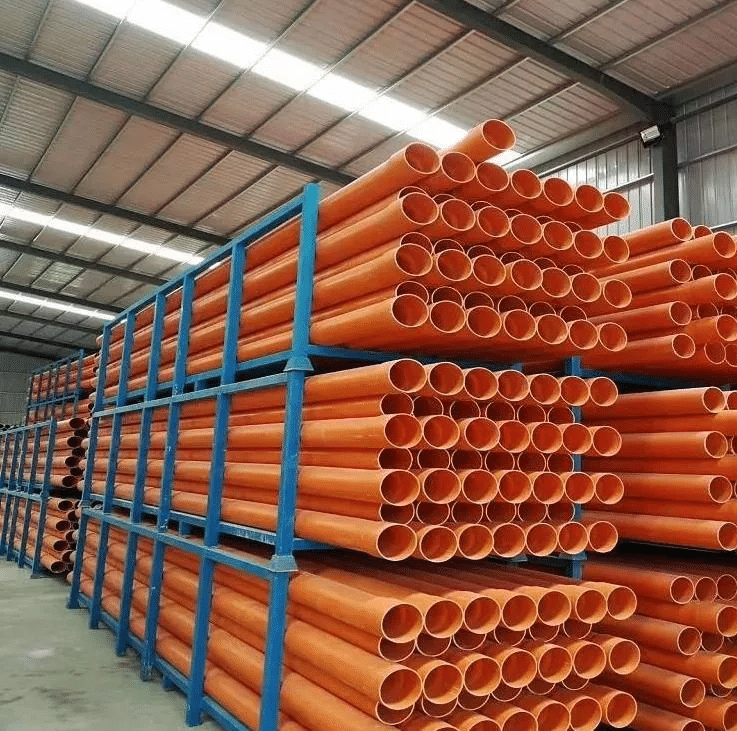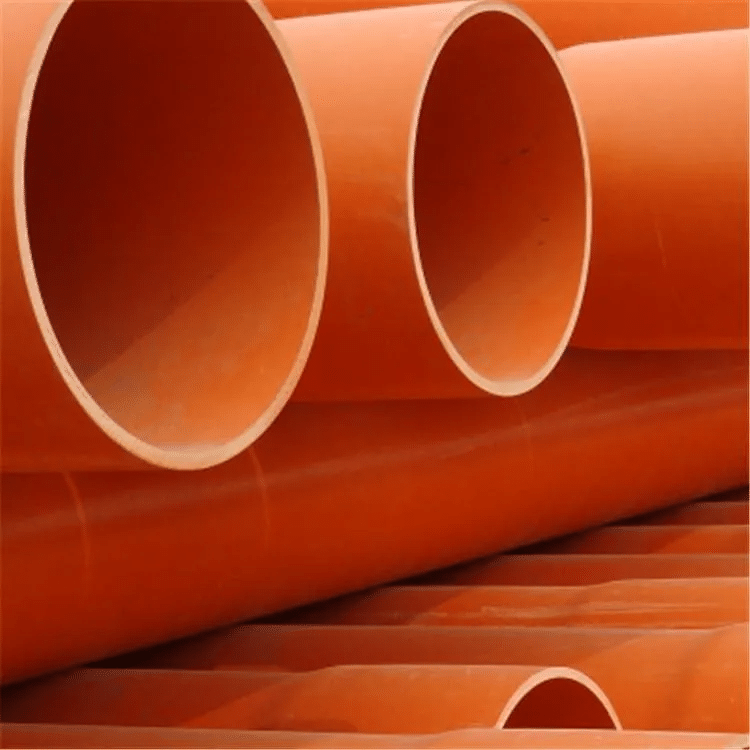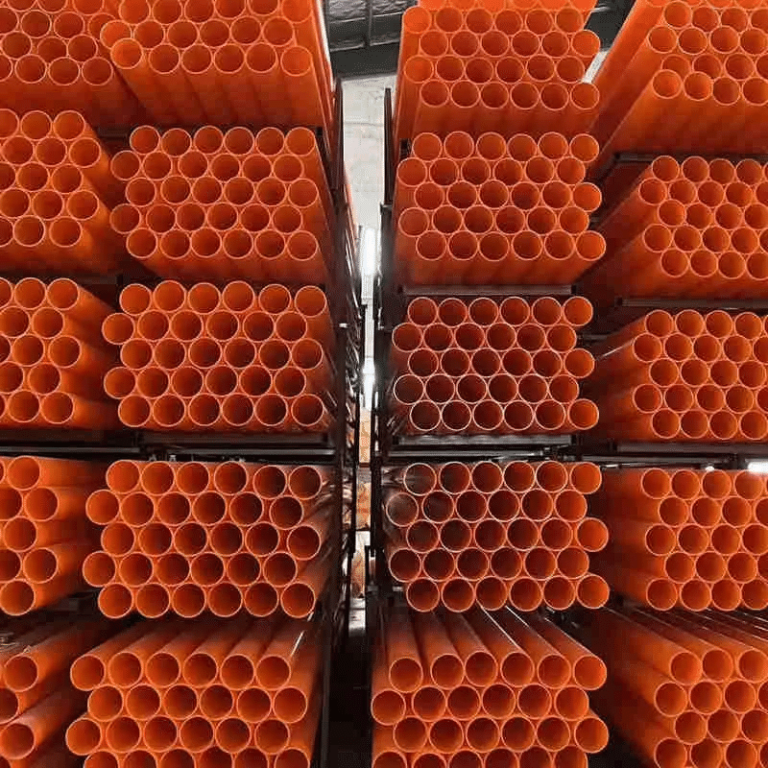PVC (Polyvinyl Chloride) cable conduit is a high-performance electrical piping solution engineered to protect and route wiring systems in residential, commercial, and industrial settings. Made from robust PVC material, it offers superior resistance to corrosion, moisture, chemicals, and UV radiation, ensuring long-term reliability for both indoor and outdoor applications. Its lightweight design simplifies installation while maintaining exceptional durability, reducing project timelines and labor costs. Ideal for safeguarding power, data, and communication cables, this conduit is a cost-effective alternative to traditional metal conduits, meeting international standards such как ISO, UL, and ASTM
.
Key Features & Advantages
Lightweight & Easy Installation
Weighing significantly less than metal conduits, PVC conduit can be effortlessly cut, bent, and installed using basic tools like saws and solvent cement. Its flexibility allows for seamless routing around obstacles, minimizing the need for additional fittings
.
Exceptional Corrosion & Chemical Resistance
Unlike metal alternatives, PVC will not rust, corrode, or degrade when exposed to moisture, acids, alkalis, or soil chemicals. This makes it suitable for underground burial, wastewater facilities, and coastal environments
.
High Durability & Impact Strength
Manufactured from high-impact PVC-U material, the conduit withstands physical stress, compression (e.g., compression strength >750N), and temperature fluctuations from -40°C to 60°C. It remains crack-resistant even in freezing conditions
.
Safety Compliance
As a non-conductive material, PVC prevents electrical leakage and short circuits. It is flame-retardant, self-extinguishing, and emits low smoke in fire scenarios, enhancing safety in public spaces
.
Smooth Interior for Efficient Cable Management
The low-friction inner surface facilitates easy wire pulling, reducing installation time and preventing damage to cables during insertion
